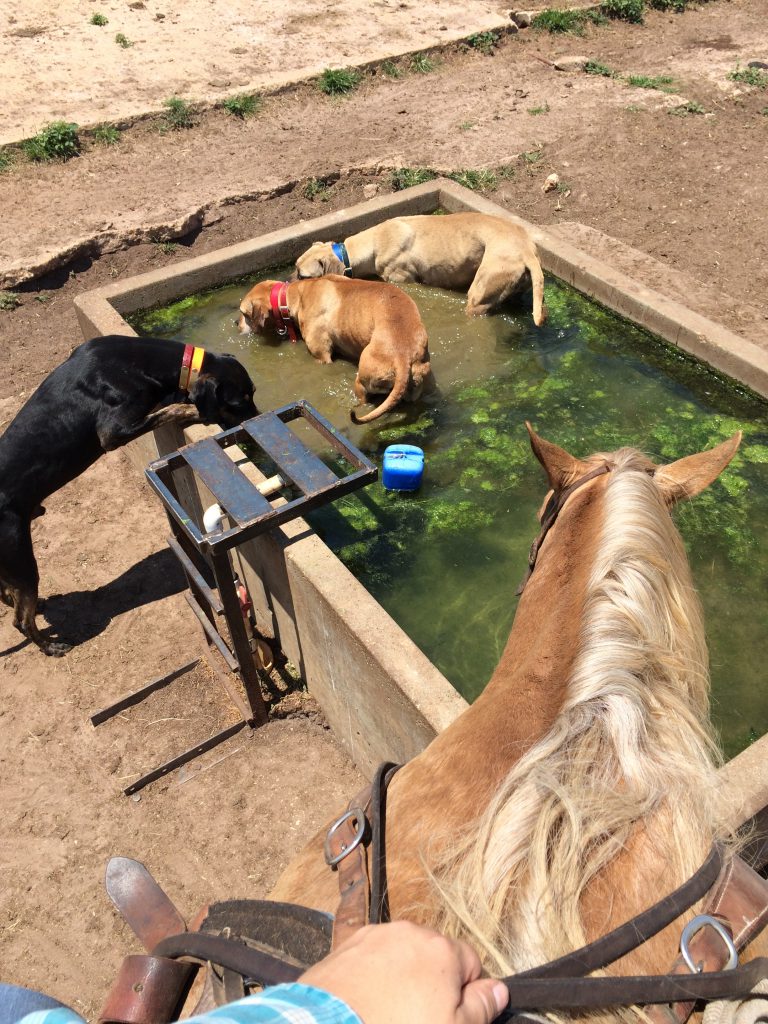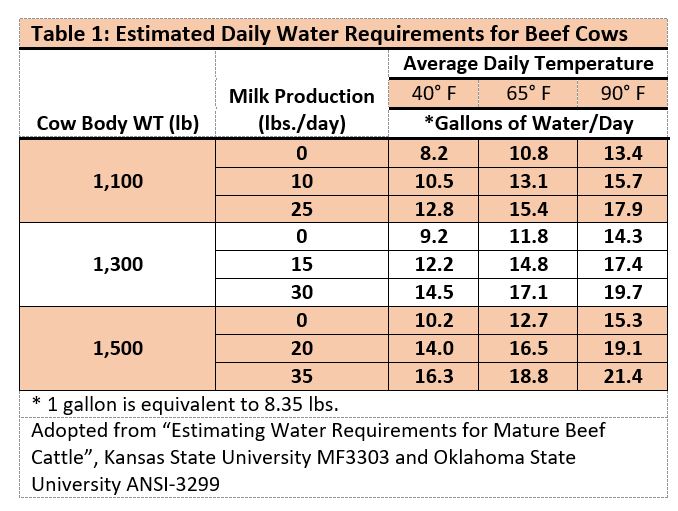
Things are heating up in the Panhandle, and everyone is trying cool off. Clean, fresh drinking water is critical for cattle performance in the summer heat. Photo Credit: K. Waters
When producers think about nutritional requirements for beef cattle, protein, energy, and minerals often come to mind. However, none of the above-mentioned nutrients will meet an animal’s needs without adequate water consumption.
There are minimum amounts of water required for growth, fetal development, lactation and the replacement of water from urine and evaporation (Table 1). Going into the summer months in the Southeastern U.S., it is critical to remember that water is required for the animal to regulate body temperatures, as well as to maintain health and maximize production.
For producers, this means ensuring cattle have clean and abundant water sources available to them at all times. The total amount of water that is required for cattle is influenced by weight, stage of production, and weather conditions.
Factors influencing water requirements for cattle include:
- Stage of production: Lactating cows will have a much higher water requirement. Milk composition in beef cows is about 4% fat and 8% other solids (proteins, carbohydrates, and minerals). The remaining 88% of milk is water. Research in dairy herds shows that for every pound of milk produced by a cow, an additional 0.87 to 0.9 pounds of water will be required for consumption by that cow.
- Environment: Temperature and humidity are key players in water consumption. For every 10 degrees above 40° F cattle consume about 1 more gallon of water per day.
- Diet: Water content in the feed is highly variable. For example a total mixed ration (TMR) such that would be fed at a feed yard is much drier than what cattle grazing lush forages will be consuming. As the water content of feed consumed increases, the amount of water cattle will drink decreases.
All of these factors impact the total water requirements and intake by cattle. Cattle producers must continuously supply clean, fresh water to ensure they are meeting all of the nutritional requirements of their herd.
If you believe you have an issue with your water source or supply, please contact your county extension agent.
For more information on this topic, use the following links:
Estimating Water Requirements for Beef Cows
The Impact of Water Quality on Beef Cattle Health and Performance
Water Nutrition and Quality Considerations for Cattle
- Bull Selection Strategies Webinar – May 9 - April 19, 2024
- Freemartin: A Heifer Calf Born as a Twin to a Bull Calf - February 23, 2024
- Highlights from the 2023 Panhandle Cattlemen’s College - November 3, 2023
